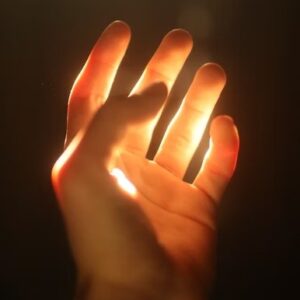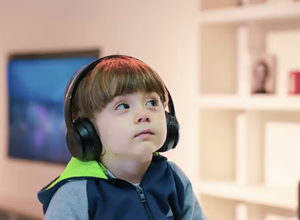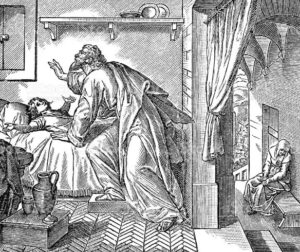by Rev. Racquel Ray
Assoc. Minister of Congregational Life
We know the familiar stories of miraculous Biblical healing. God “restored the fortunes of Job and gave Job twice as much as he had before” (Job 42:10). The prophet Elijah healed the widow’s son. Jesus healed the woman with the issue of blood, the paralytic, the blind man, lepers, demoniacs, and more. Scriptures say, “large crowds came to Him [Jesus], bringing with them those who were lame, crippled, blind, mute, and many others, and they laid them down at His feet; and He healed them” (Matthew 15:30).
Biblical customs of holiness defined differences between clean and sacred and unclean and profane. Disability was prescribed as profane or unclean and was a result of sinful behavior. The disciples asked Jesus, “Rabbi, who sinned, this man or his parents, that he was born blind (John 9:2)? Having a disability, such as blindness, was seen as a result of sinful behavior and could be avoided with righteousness. Further, it was understood that the sins of a parent could be seen in the disabilities of the children.
Theologians in the middle ages such as Gregory of Nazianzus claimed that both abled and disabled people had equal portions of the divine image and therefore everyone could be healed. This theology made space for bringing the sick, disabled, and marginalized into the Christian community by creating orphanages, respite homes, and hospitals. However, it also created a dynamic binary of “abled” and “disabled” that has permeated churches and society for hundreds of years.
 Spiritual revival in our current generation is well documented. Dennis J Bennett’s book Nine O’Clock in the Morning[i], Healing[ii] by Francis MacNutt, PhD, and The Healing Light[iii] by Agnes Sanford document a season of church revival and Spiritual and miraculous healing. Disability and illness are treated as a problem to be healed. Perhaps the faith of the healed or the faith of the healer were strong enough to merit God’s grace and miracles. Often, when healing doesn’t occur in these instances, perhaps the faith of either party is questionable? The theodicy of God is questioned; ‘why does suffering exist’.
Spiritual revival in our current generation is well documented. Dennis J Bennett’s book Nine O’Clock in the Morning[i], Healing[ii] by Francis MacNutt, PhD, and The Healing Light[iii] by Agnes Sanford document a season of church revival and Spiritual and miraculous healing. Disability and illness are treated as a problem to be healed. Perhaps the faith of the healed or the faith of the healer were strong enough to merit God’s grace and miracles. Often, when healing doesn’t occur in these instances, perhaps the faith of either party is questionable? The theodicy of God is questioned; ‘why does suffering exist’.
When Christians face illness, we often hear poor theological explanations such as Paul’s encouragement to the church in Corinth. Paul writes, “No testing has overtaken you that is not common to everyone. God is faithful, and he will not let you be tested beyond your strength, but with the testing he will also prove the way out so that you may be able to endure it!” (1 Corinthians 10:13). To paraphrase, God will not give us more than we can handle. This also is not helpful to the one who is suffering.
While we love people who identify as differently-abled, but we don’t actually make our church spaces available by being accommodating and accessible. Many churches don’t have accessibility for folks with mobility assistance devices. Think of the elevette in our church. We can offer assistance to church guests but, will it fit a large wheelchair? Can a person with differences turn their wheelchair around in the elevette? Or bathroom? Can church goers access our spaces without assistance? Is our signage clear? Do our automatic doors work?
How about learning differences? Visual impairment? And hearing impairment? Don’t church services assume that folks can sit still for an hour, read, listen, sit and stand as custom prescribes?
 Recently, I’ve been confronted with the reality that I have permanent nerve damage from a dental procedure. I’ve been in speech therapy for about two years to work around a profound slur and drooling. A few months ago, I learned that my ability to swallow was also affected. During a recent Communion service, I noticed that I was having trouble swallowing the communion bread. I worked with my healthcare team, Rev. Dale, and our Deacons to figure out an accommodation. We now have a glass of water on the table with the sacred communion elements. After I eat the bread, I will need to take several gulps of water to wash down the bread.
Recently, I’ve been confronted with the reality that I have permanent nerve damage from a dental procedure. I’ve been in speech therapy for about two years to work around a profound slur and drooling. A few months ago, I learned that my ability to swallow was also affected. During a recent Communion service, I noticed that I was having trouble swallowing the communion bread. I worked with my healthcare team, Rev. Dale, and our Deacons to figure out an accommodation. We now have a glass of water on the table with the sacred communion elements. After I eat the bread, I will need to take several gulps of water to wash down the bread.
I wasn’t ready to share my disabilities publicly because of the lack of public understanding around disabilities based in millennia of poor theology. However, how many of our members, friend, guests, and family members are experiencing similar challenges?
 Rather than ignoring my differences, I have learned to accept them and learned to advocate and accommodate. There are many members of the congregation and community with many forms of differences. With our youth, I refer to them as ‘super-powers’. What does it look like for our congregation to embrace folks with differences? Do we accept water on the Communion table? Do we update our elevette and signage? Do we build on the good work already begun with hearing assistance, large print bulletins, and ramps and doors?
Rather than ignoring my differences, I have learned to accept them and learned to advocate and accommodate. There are many members of the congregation and community with many forms of differences. With our youth, I refer to them as ‘super-powers’. What does it look like for our congregation to embrace folks with differences? Do we accept water on the Communion table? Do we update our elevette and signage? Do we build on the good work already begun with hearing assistance, large print bulletins, and ramps and doors?
While healing is possible, not everyone is healed. And how we accept, accommodate, and provide access for differences can mean broadening our understanding of opening God’s doors to all. In the case of Jesus and the blind man, “Neither he nor his parents sinned,” Jesus answered, “He was born blind so that the works of God might be displayed in him.” (John 9:3). May the works of God be visible among us as we learn to accommodate and accept our differences.
[i] (Bennett, 1970)
[ii] (Francis MacNutt, 1974, 1999, 2002)
[iii] (Sanford, 1947, 1972)



